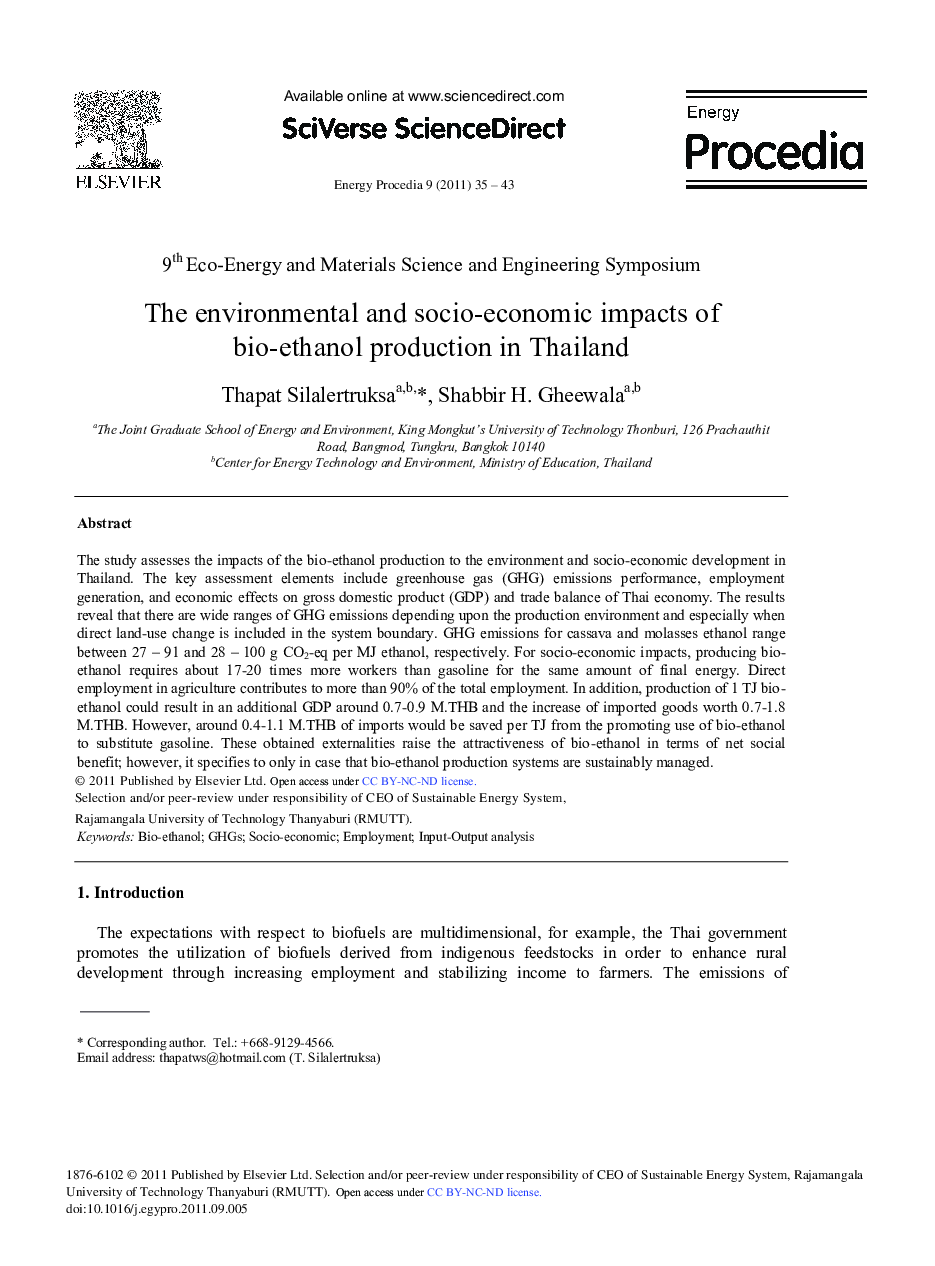| کد مقاله | کد نشریه | سال انتشار | مقاله انگلیسی | نسخه تمام متن |
|---|---|---|---|---|
| 1514373 | 1511224 | 2011 | 9 صفحه PDF | دانلود رایگان |

The study assesses the impacts of the bio-ethanol production to the environment and socio-economic development in Thailand. The key assessment elements include greenhouse gas (GHG) emissions performance, employment generation, and economic effects on gross domestic product (GDP) and trade balance of Thai economy. The results reveal that there are wide ranges of GHG emissions depending upon the production environment and especially when direct land-use change is included in the system boundary. GHG emissions for cassava and molasses ethanol range between 27 – 91 and 28 – 100 g CO2-eq per MJ ethanol, respectively. For socio-economic impacts, producing bio-ethanol requires about 17-20 times more workers than gasoline for the same amount of final energy. Direct employment in agriculture contributes to more than 90% of the total employment. In addition, production of 1 TJ bio-ethanol could result in an additional GDP around 0.7-0.9 M.THB and the increase of imported goods worth 0.7-1.8 M.THB. However, around 0.4-1.1 M.THB of imports would be saved per TJ from the promoting use of bio-ethanol to substitute gasoline. These obtained externalities raise the attractiveness of bio-ethanol in terms of net social benefit; however, it specifies to only in case that bio-ethanol production systems are sustainably managed.
Journal: Energy Procedia - Volume 9, 2011, Pages 35-43